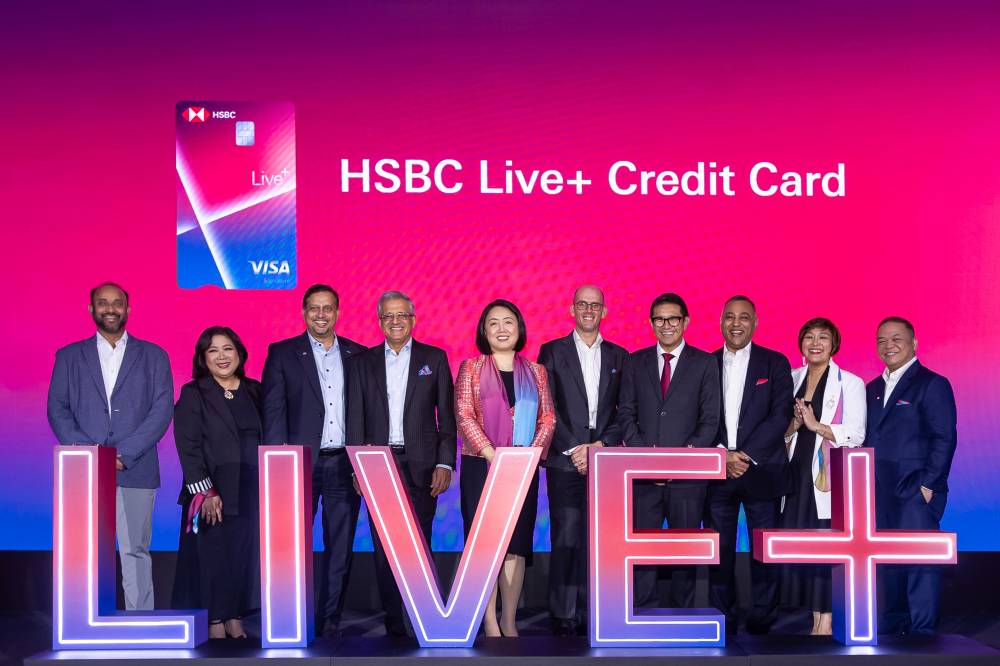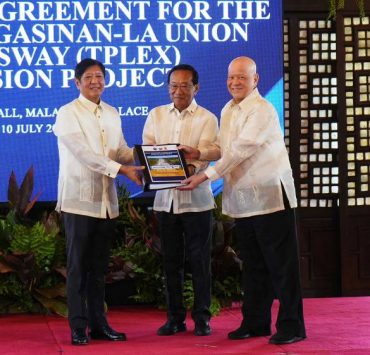Young emerging affluent driving PH growth
The Philippines, with its young demographic, economic vibrancy and growing affluence, presents fertile ground for global banking giant HSBC’s ambitious growth plans.
The country boasts a young population, a significant portion of which holds college degrees. This translates to a growing, educated middle class with a strong propensity to spend—a consumer-driven environment that aligns perfectly with the bank’s strategic goals.
These insights were unveiled last Monday at the Peninsula Manila, as HSBC launched its newest lifestyle credit card with Visa called Live+.
“This is a country with a very young population of 180 million, young and vibrant, where the median age is 25,” noted Kai Zhang, HSBC head of wealth and personal banking for South and Southeast Asia. “And it’s a very consumption-driven economy, probably the most consumption-driven, where around 75 percent of the GDP is from consumption.”
More people are also embracing travel, dining and other lifestyle experiences, she added.
Peter Faulhaber, who heads HSBC Phils.’ wealth and personal banking, pointed out that “we’re seeing consumption come back with a vengeance … Just this past weekend, traffic was crazy. On the weekends, the malls are full, the restaurants are full, the movie theaters are full, people are really out and about.”
Cashless trend
“Last year, our new card acquisition globally increased 34 percent,” Zhang said. “A large part of that growth comes from this part of the world, from Asia and Asean. This is a region with a combined population of over 600 million people, and 60 percent will become middle class by 2030. So that speaks to the growth potential.”
Faulhaber concurred, also citing projected figures. “We relaunched wealth management two years ago in the Philippines, catering to the emerging affluent. People with $250,000 and more will double in the Philippines in five years, and those with $1 million will also double” in the same period.
Jeff Navarro, country manager of Visa Phils., described the new face of this so-called affluent consumer in the region, with its “unique set of needs.” They are relatively young and quite tech-savvy, and are looking for seamless experiences across digital and offline channels, he said.
Being digital natives weaned on such platforms as Amazon and Netflix, they expect heightened digital experiences. They’re also driving the cashless payment trend, Navarro said.

“It’s also fortunate and a very big opportunity in this part of the world (Asia Pacific), because with the number of affluents under 40, this is also the biggest. And what we’ve seen is, when it comes to card spending, more than 50 percent of card spend is coming from this affluent segment, and largely in the dining type of spending,” Navarro added.
The affluent Filipino traveler is also in search of experiential types of travel, he said.
Luxury spending
In Visa’s global survey of 37,000 consumers, 69 percent said “they want local experiences—natural attractions, local culture and history, religious sites and landmarks.” In the Philippines, that experience extends to watching concerts abroad—a trend Visa has been seeing on outbound travel to South Korea and Singapore.
“The Philippines is in the top five of those who travel to watch concerts,” said Navarro. “This segment has more disposable income and they spend twice more than those who don’t watch concerts, and in luxurious brands in retail and dining.”
It is this market that HSBC wants to capture with its Live+ credit card, a product created for dining, shopping and entertainment spending.
Live+ offers a 15-percent discount all year round at over 200 restaurants across Asia with its curated Live+ dining program, plus an 8-percent cash back on the dining bill.
With its enhanced cash back feature, Live+ card holders also get 5-percent cash back at retail shops, department stores, online marketplaces and at cinemas and streaming subscriptions, including Netflix, Disney+ and Spotify.
“We’re really responding to what customers are asking of us,” said Faulhaber. “And we’re responding to this fantastic growth that the Philippines has had … You can feel the buzz, you can feel the energy.”
















